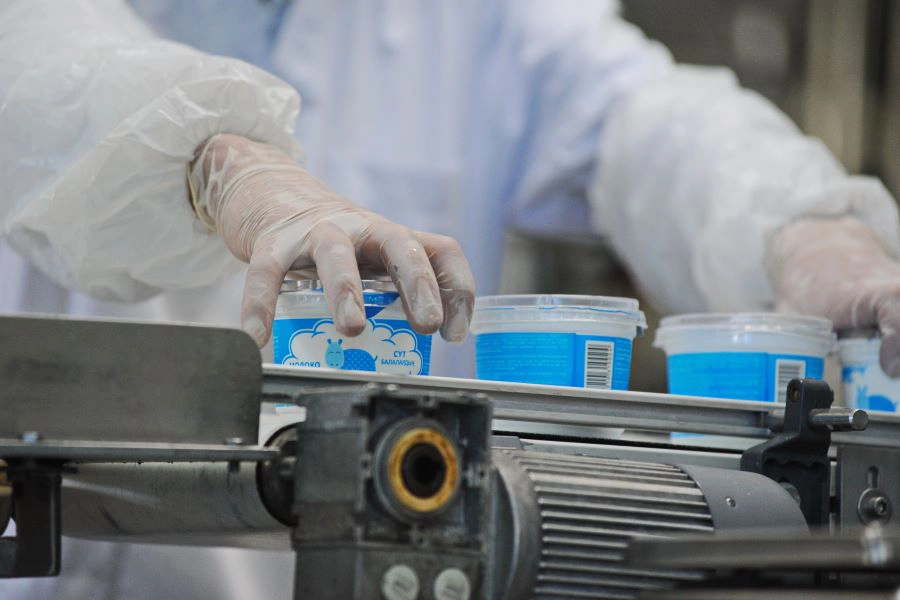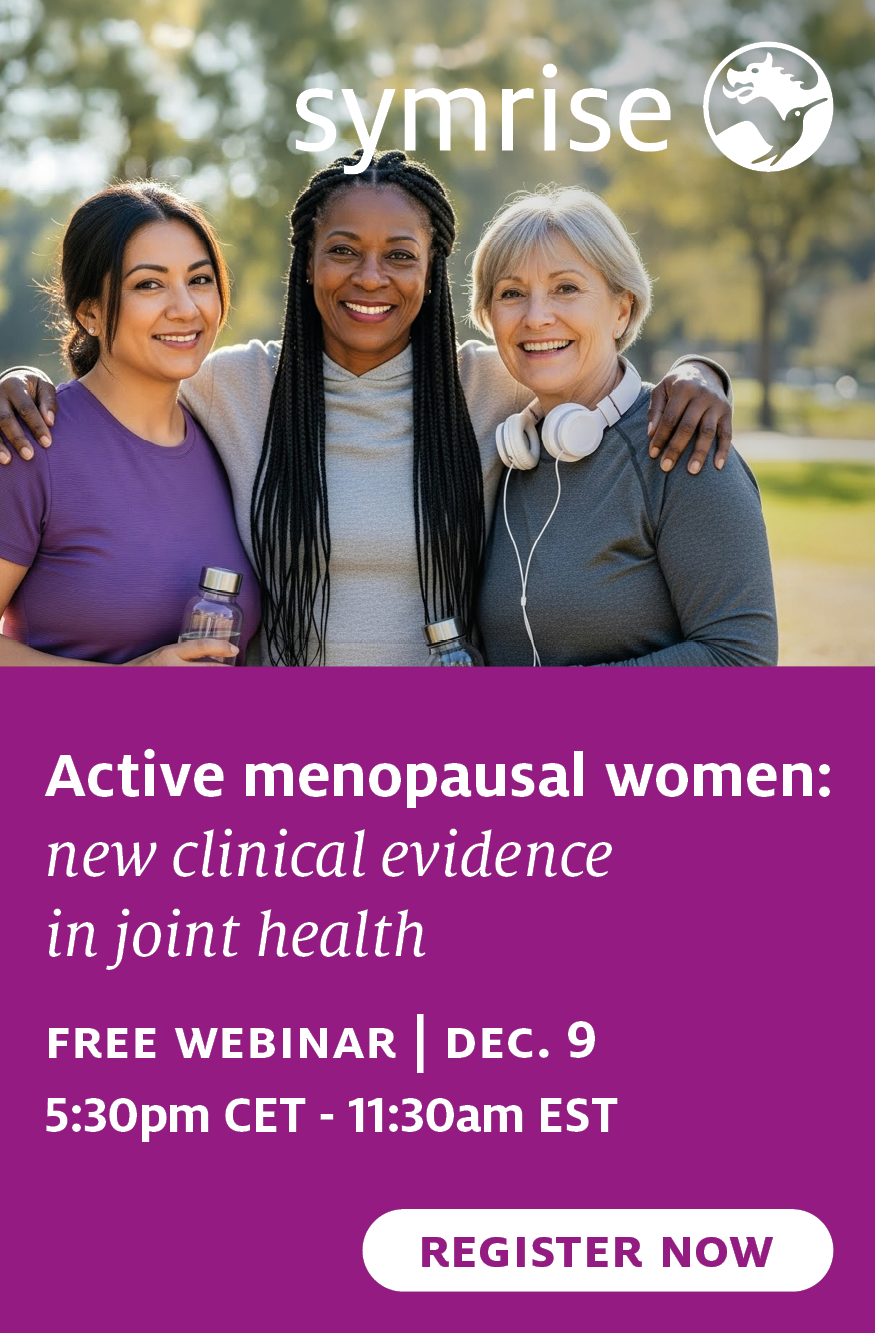Nutrition industry explores innovative infant pre- and probiotics for gut health and beyond
Key takeaways
- The infant probiotics market is evolving toward targeted, strain-specific formulations replicating breast milk’s functional benefits and supporting lifelong health.
- Advances in microbiome science, metagenomics, and AI are driving the development of personalized, clinically validated pre- and probiotic solutions for early-life nutrition.
- Companies like Novonesis, Morinaga Milk, Kerry, and FrieslandCampina Ingredients are pioneering synergistic combinations of HMOs, prebiotics, and probiotics for gut, immune, and cognitive health in infants.

The infant probiotics market is expanding rapidly, driven by advancing microbiome research and a growing parental awareness of a healthy gut microbiome’s impact on immunity and overall well-being. Nutrition innovations include strain-specific formulations and synergistic combinations of human milk oligosaccharides (HMOs), prebiotics, and probiotics.
Nutrition Insight meets with experts from Novonesis, Morinaga Milk, Kerry, and FrieslandCampina Ingredients to explore ingredient innovations that more closely mimic breast milk.
“Today’s parents are more informed and engaged than ever — they read labels, follow science updates, and actively seek solutions they can trust,” says Anne Karina Riise, global commercial industry manager at Novonesis. “This has fueled strong growth in infant probiotics, as parents increasingly view early-life gut health as a foundation for lifelong well-being.”

“Another trend is the demand for transparency and substantiation. It’s no longer enough just to say a product supports health; clinical evidence and clear communication are now expected.”
Saki Yamashita, marketing manager of Morinaga Milk’s Functional Food Ingredients Division, adds that growing parental awareness has led to a surge in demand for natural and safe probiotic solutions.
“Human-Residential Bifidobacteria (HRB) strains such as Bifidobacterium longum BB536, B. breve M-16V, and B. infantis M-63 have gained prominence due to their compatibility with the infant gut and strong safety profiles.”
“Regulatory approvals in key markets like Japan, China, and the US have further accelerated adoption,” she adds. “Infant formulas are now being fortified with clinically validated probiotics to replicate the functional benefits of breast milk, marking a shift from generic probiotic inclusion to targeted, strain-specific formulations.”
Research advances
Stine Ninel Hansen, global scientific advisor at Novonesis, says that infant health and probiotics science is evolving rapidly, highlighting how new research reveals gaps in infants’ gut microbiomes that tailored probiotics may address.
“For example, a very recent US study of 412 infants showed that around one-quarter of these infants had no detectable infant-type bifidobacteria by three months of age, and that over 90% lacked B. longum subs. infantis. This is a striking finding, as these microbes have traditionally been associated with supporting immune system maturation and overall health in early life.”
 Ninel Hansen says that advancing microbiome insights drive the development of formulations, with the “right strains at the right time.”“Insights like these are driving the development of formulations,” Ninel Hansen underscores. “They also emphasize the importance of not just any probiotic, but the right strains at the right time.”
Ninel Hansen says that advancing microbiome insights drive the development of formulations, with the “right strains at the right time.”“Insights like these are driving the development of formulations,” Ninel Hansen underscores. “They also emphasize the importance of not just any probiotic, but the right strains at the right time.”
Yamashita at Morinaga Milk says that microbiome research and breast milk nutrition have revolutionized the development of infant probiotics. “Recent microbiota research shows that HMO composition varies by maternal secretor status, and certain Bifidobacterium strains are better at utilizing HMOs.”
She adds that early administration of compatible HRB strains has been shown to reduce the risk of allergies, obesity, and autoimmune conditions. “Clinical studies continue to confirm the role of bifidobacteria dominance in promoting healthy growth and resilience in infants.”
Meanwhile, Mónica Olivares Martín, Ph.D., RD&A director in Women & Infant Health at Kerry, affirms that advances in microbiome research are “profoundly shaping” the development of new formulations for infants.
“Large-scale genomic studies are shedding light on the critical role of ‘pioneer’ bacteria in early infant gut colonization and the long-term development of the microbiome, providing valuable direction for the design of new probiotic strains.”
Moreover, she says that metagenomics and AI developments enable researchers to predict specific strains’ functionality and interactions within the infant gut ecosystem.
“We are likely to see the emergence of personalized probiotic therapies, where an infant’s microbiome is mapped early and matched with the most beneficial strains for optimal health outcomes,” Olivares Martín predicts.
Human milk probiotics
The experts note that ingredient innovations are transforming infant gut health products with a key focus on replicating the benefits of breast milk.
 Kerry has isolated strains of human milk probiotics, bioactive compounds found in breast milk that shape the infant gut microbiota.Olivares Martín says the gut microbiota has become a prime target for these innovations as it plays a central role in digestive and immune health. “New generations of prebiotics, probiotics, and postbiotics are emerging as promising tools to support gut health.”
Kerry has isolated strains of human milk probiotics, bioactive compounds found in breast milk that shape the infant gut microbiota.Olivares Martín says the gut microbiota has become a prime target for these innovations as it plays a central role in digestive and immune health. “New generations of prebiotics, probiotics, and postbiotics are emerging as promising tools to support gut health.”
“A notable example is human milk probiotics, which have proven to be powerful ingredients to support an infant’s health. Naturally present in breast milk, these bioactive components uniquely shape the infant gut microbiota as intended by nature, pioneering early microbial colonization and guiding the development of the neonatal gut ecosystem.”
She says Kerry pioneered isolating and developing human milk probiotics, bringing unique strains to the market, such as Hereditum LC40 and Hereditum BFM26. “These strains are the first probiotic and Bifidobacterium isolated from human breast milk that offer a safe and efficient way to support gut comfort.”
“Several clinical trials support the advantages of these strains for infants and show how their benefits extend not only to the general infant population but also to those with specific health needs, such as infants born via C-section, pre-term babies, and other vulnerable groups,” highlights Olivares Martín.
Prebiotics for gut health
Sophie Nicolas, global marketing lead in Early Life Nutrition at FrieslandCampina Ingredients, says that gut health is emerging as a top priority in infant nutrition as parents are increasingly aware that it has benefits beyond digestion. This awareness is driving interest in prebiotics in addition to probiotics.
“A healthy gut microbiome can support a variety of benefits such as promoting immune health, brain development and cognition, mental well-being, as well as healthy growth through improved mineral absorption.”
“Pre- and probiotics have become a must-have component in infant milk formula for many parents. Among them, prebiotic galacto-oligosaccharides (GOS) are real standouts.”
 Nicolas observes an interest in prebiotics, in addition to probiotics, as parents are increasingly aware that a healthy gut has benefits beyond digestion.She notes that GOS has a long history of safe use in infant nutrition, which is built on a strong foundation of clinical evidence. “They are well recognized for their ability to promote the growth of beneficial gut bacteria and support overall gut health in infants. Innovation in this space is now focused on how GOS can be combined with other gut-supporting components to unlock even greater benefits.”
Nicolas observes an interest in prebiotics, in addition to probiotics, as parents are increasingly aware that a healthy gut has benefits beyond digestion.She notes that GOS has a long history of safe use in infant nutrition, which is built on a strong foundation of clinical evidence. “They are well recognized for their ability to promote the growth of beneficial gut bacteria and support overall gut health in infants. Innovation in this space is now focused on how GOS can be combined with other gut-supporting components to unlock even greater benefits.”
Pointing to data from Innova Market Insights, Nicolas says half of infant milk formulas worldwide contain GOS, and 57% of new launches in 2025 featured these ingredients.
“To help brands capitalize on the prebiotic opportunity, we offer Vivinal GOS. Our GOS is the world’s most studied, with over 70 clinical trials in infants and young children, delivering proven benefits for gut health and overall well-being when breastfeeding is not an option.”
Nicolas highlights combinations of GOS and HMOs as an “exciting area of development.” She details that in vitro research demonstrated that combining GOS and the HMO 2’-Fucosyllactose (2’-FL) worked well.
“With new research showing how GOS naturally delivers HMOs, combining them with other HMO structures such as 2’-FL can enhance oligosaccharide diversity in formulations, potentially offering complementary health benefits.”
Nicolas says FrieslandCampina Ingredients is also exploring synbiotics as a promising direction. These solutions combine GOS with probiotics to further promote a healthy gut microbiota and support functional benefits such as gut health and beyond.
Holistic health solutions
Ninel Hansen at Novonesis says infant nutrition is moving beyond single ingredients to holistic solutions. “HMOs, for instance, provide a natural substrate for infant-type bifidobacteria, creating opportunities for synergistic synbiotic formulations.”
 By closely mimicking breast milk, combining probiotics with HMOs or lactoferrin offer comprehensive support for infants, says Yamashita.“We also see supportive roles for ingredients like lactoferrin, vitamin D, and omega-3s, which together can support gut, immune, and overall development. The innovation is really in how these components are thoughtfully combined,” she highlights.
By closely mimicking breast milk, combining probiotics with HMOs or lactoferrin offer comprehensive support for infants, says Yamashita.“We also see supportive roles for ingredients like lactoferrin, vitamin D, and omega-3s, which together can support gut, immune, and overall development. The innovation is really in how these components are thoughtfully combined,” she highlights.
Yamashita also notes that synbiotic formulations enhance colonization and functional outcomes, explaining that HRBs are better at utilizing HMOs than non-HRB strains.
She says Morinaga Milk has been at the forefront of innovation in infant gut health. For example, the company’s Triple Bifidus Combination of three strains offers a synergistic approach to colonization and health benefits.
“Each strain contributes uniquely to gut maturation, immune modulation, nutrient absorption, and HMO utilization. In addition to probiotics, ingredients like lactoferrin have shown promise in supporting immune development and reducing inflammation.”
By closely mimicking the functional profile of breast milk, such ingredient combinations offer comprehensive support for infants.
“Recent studies have shown that even if infants are breastfed, they sometimes lack bifidobacteria. Therefore, research suggests that not only giving prebiotics as a feed for probiotics, but also taking probiotics itself as a seed is important to build infants’ healthy gut microbiota,” Yamashita concludes.



















